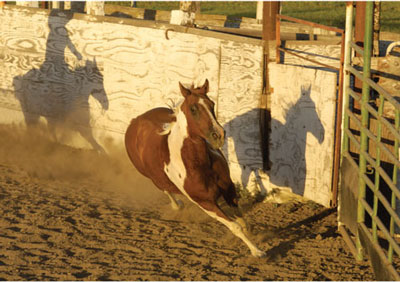Horse tripping can fly under the radar
U.S. veterinarians should be vigilant of “charreadas,” or Mexican-style rodeos, that might be taking place near them and learn more about horse tripping—a charreada activity that Dr. Gerald Huff says “has no place in our society.”
Three of nine charreada events include the practice of horse tripping:
- “Piales en lienzo”: roping the hind limbs of a horse.
- “Manganas a pie”: roping the forelimbs of a horse while the charro, or roper, is on foot.
- “Manganas a caballo”: roping the forelimbs of a horse while the charro is on horseback.

Points are awarded for how quickly the charro can rope the horse, and it’s not uncommon for individual horses to be roped multiple times at an event. No data exist on the incidence of injuries to horses during charreadas, but Dr. Huff said during a presentation on the topic Aug. 5 at AVMA Convention 2016 in San Antonio that tripping and hard falls for horses can result in fractures and internal injuries and that dodging the rope can also result in fractures as well as tendon and ligament injuries. Horse tripping could also cause extreme fatigue, severe rope burns, and lifetime fear of ropes, humans, and mounted riders.
Three years ago, Dr. Huff, an equine practitioner in Las Vegas, learned of a proposed moratorium on the Clark County, Nevada, ordinance against horse tripping, intended to clear the way for a permit to allow a charreada.
Without the permit, the planned roping events could not lawfully be conducted. Dr. Huff and others persuaded the commissioners to resist issuing the moratorium.
Horse tripping has been banned in 11 states. That means 39 states have no codes addressing the practice.
Dr. Huff says state and local jurisdictions are in dire need of support from organizations such as the United States Animal Health Association, the American Association of Equine Practitioners, and the AVMA. Both the AAEP and AVMA have statements against horse tripping. Dr. Huff says, however, “Work needs to be done still to make the position statements stronger, and I hope that will be the case in the near future.”
Related JAVMA content:
Horse tripping a new welfare concern (June 1, 2014)